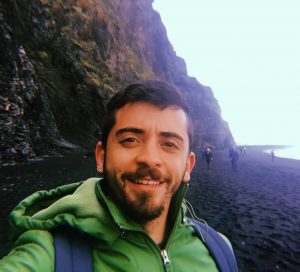Raphael Ocelli Pinheiro
 Bio
Bio
I was born in Contagem, Brazil. I have a bachelor’s degree in Biological Sciences from Instituto Federal de Minas Gerais (Brazil) and Xavier University of Louisiana (USA). I also have a master’s degree in Human Ecology from Vrije Universiteit Brussel (Belgium), with a research on cultural ecosystem services and ecotourism development in protected areas. My experience as a researcher is based on sustainable development, human ecology, education, conservation and management of natural/cultural resources and sustainable heritage approaches.
PhD Research Topic
My PhD research is part of the Environmental Sciences Panel – Research Area 4: Assessment of diversities for cultural heritage enhancement and geoheritage conservation. The study addresses the assessment of agricultural and mining landscapes (in Brazil and Italy), their overlapping occurrences, sociocultural characteristics, and recognition and status based on cultural heritage designations and geoconservation strategies such as UNESCO Global Geoparks and GEOfood.
Methodology
A combination of mixed methods such as: (i) literature analysis, (ii) bibliometrics, and (iii) meta analysis for the current state of heritage programs based on Globally Important Agricultural Heritage Systems, UNESCO Global Geoparks and GEOfood; Followed by (iv) surveying of local and traditional communities, stakeholders, and managers. The surveying (online and presential) was used to assess the strategies and future perspectives of different communities in regards to environmental issues (i.e., geohazards, climate change, mining related challenges) and adherence/ availability to geoconservation strategies in the region (i.e., UNESCO Global Geoparks and GEOfood brand).
Outcome
A catalogue in which we constructed and contrasted the Brazilian and Italian agricultural heritage systems programs in respect to their history, registry, development, and current status. The catalogued served as a bridge to interlink the agricultural landscapes of the State of Minas Gerais (Brazil) with mining landscapes and their suitability to apply and adapt geoconservation strategies (i.e., UNESCO Global Geoparks and GEOfood). All in all, it served the propose of understanding and integrating how heritage programs can be implemented within sustainable public policies at national and International level. In addition, the Canastra Geopark Project started in the Serra da Canastra Region (South East Brazil), a partnership combining (i) the Serra da Canastral National Park, (ii) the Instituto Federal de Minas Gerais Campus Bambuí (IFMG Bambuí), and (ii) the IGCP 726 “GEOfood for sustainable development in UNESCO Global Geoparks” with different initiatives related to biodiversity, geodiversity, agriculture, and geotourism development. Detailed information about the research and results can be found on the full manuscripts published:
1. Agricultural Heritage: Contrasting National and International Programs in Brazil and Italy. (https://www.mdpi.com/2071-1050/14/11/6401).
2. A Framework for Geoconservation in Mining Landscapes: Opportunities for Geopark and GEOfood Approaches in Minas Gerais, Brazil. (https://www.mdpi.com/2079-9276/12/2/20).
Final manuscript is coming out soon.
Tech4Culture Fellow – Call 2 (2019)
Supervisor: Marco Giardino, Earth Sciences Department
